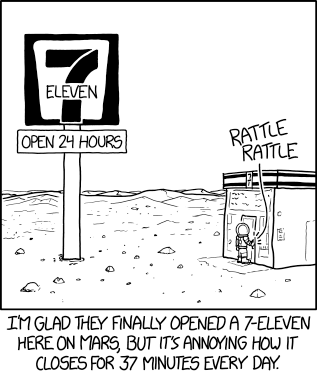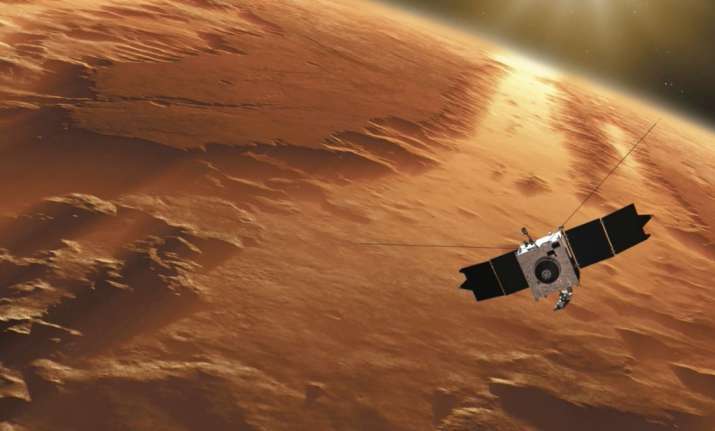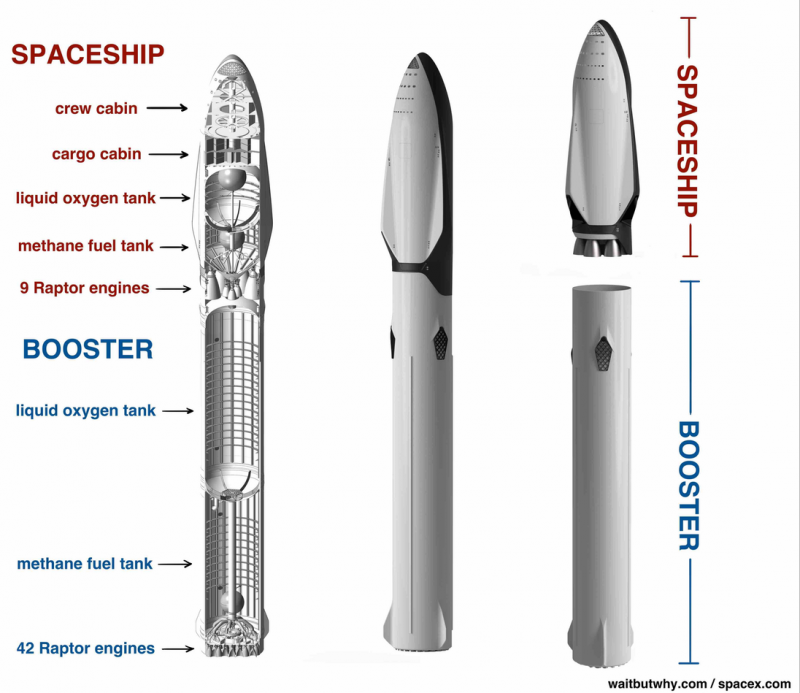Advertisement
If you have a new account but are having problems posting or verifying your account, please email us on hello@boards.ie for help. Thanks :)
Hello all! Please ensure that you are posting a new thread or question in the appropriate forum. The Feedback forum is overwhelmed with questions that are having to be moved elsewhere. If you need help to verify your account contact hello@boards.ie
Mars by 2020?
Options
Comments
-
-
-
Moderators, Category Moderators, Science, Health & Environment Moderators, Society & Culture Moderators, Regional East Moderators, Regional Midlands Moderators, Regional Midwest Moderators, Regional Abroad Moderators, Regional North Mods, Regional West Moderators, Regional South East Moderators, Regional North East Moderators, Regional North West Moderators, Regional South Moderators Posts: 9,024 CMod ✭✭✭✭
 Join Date:Posts: 8852
Join Date:Posts: 8852
0 -
-
-
Advertisement
-
Moderators, Category Moderators, Science, Health & Environment Moderators, Society & Culture Moderators, Regional East Moderators, Regional Midlands Moderators, Regional Midwest Moderators, Regional Abroad Moderators, Regional North Mods, Regional West Moderators, Regional South East Moderators, Regional North East Moderators, Regional North West Moderators, Regional South Moderators Posts: 9,024 CMod ✭✭✭✭
 Join Date:Posts: 8852
Join Date:Posts: 8852
0 -
Moderators, Category Moderators, Science, Health & Environment Moderators, Society & Culture Moderators, Regional East Moderators, Regional Midlands Moderators, Regional Midwest Moderators, Regional Abroad Moderators, Regional North Mods, Regional West Moderators, Regional South East Moderators, Regional North East Moderators, Regional North West Moderators, Regional South Moderators Posts: 9,024 CMod ✭✭✭✭
 Join Date:Posts: 8852
Join Date:Posts: 8852
0 -
-
Moderators, Category Moderators, Science, Health & Environment Moderators, Society & Culture Moderators, Regional East Moderators, Regional Midlands Moderators, Regional Midwest Moderators, Regional Abroad Moderators, Regional North Mods, Regional West Moderators, Regional South East Moderators, Regional North East Moderators, Regional North West Moderators, Regional South Moderators Posts: 9,024 CMod ✭✭✭✭
 Join Date:Posts: 8852
Join Date:Posts: 8852
0 -
Moderators, Category Moderators, Science, Health & Environment Moderators, Society & Culture Moderators, Regional East Moderators, Regional Midlands Moderators, Regional Midwest Moderators, Regional Abroad Moderators, Regional North Mods, Regional West Moderators, Regional South East Moderators, Regional North East Moderators, Regional North West Moderators, Regional South Moderators Posts: 9,024 CMod ✭✭✭✭
 Join Date:Posts: 8852
Join Date:Posts: 8852
0 -
Advertisement
-
Moderators, Category Moderators, Science, Health & Environment Moderators, Society & Culture Moderators, Regional East Moderators, Regional Midlands Moderators, Regional Midwest Moderators, Regional Abroad Moderators, Regional North Mods, Regional West Moderators, Regional South East Moderators, Regional North East Moderators, Regional North West Moderators, Regional South Moderators Posts: 9,024 CMod ✭✭✭✭
 Join Date:Posts: 8852
Join Date:Posts: 8852
0 -
-
Moderators, Category Moderators, Science, Health & Environment Moderators, Society & Culture Moderators, Regional East Moderators, Regional Midlands Moderators, Regional Midwest Moderators, Regional Abroad Moderators, Regional North Mods, Regional West Moderators, Regional South East Moderators, Regional North East Moderators, Regional North West Moderators, Regional South Moderators Posts: 9,024 CMod ✭✭✭✭
 Join Date:Posts: 8852
Join Date:Posts: 8852
0 -
-
Moderators, Category Moderators, Science, Health & Environment Moderators, Society & Culture Moderators, Regional East Moderators, Regional Midlands Moderators, Regional Midwest Moderators, Regional Abroad Moderators, Regional North Mods, Regional West Moderators, Regional South East Moderators, Regional North East Moderators, Regional North West Moderators, Regional South Moderators Posts: 9,024 CMod ✭✭✭✭
 Join Date:Posts: 8852
Join Date:Posts: 8852
0 -
-
Moderators, Category Moderators, Science, Health & Environment Moderators, Society & Culture Moderators, Regional East Moderators, Regional Midlands Moderators, Regional Midwest Moderators, Regional Abroad Moderators, Regional North Mods, Regional West Moderators, Regional South East Moderators, Regional North East Moderators, Regional North West Moderators, Regional South Moderators Posts: 9,024 CMod ✭✭✭✭
 Join Date:Posts: 8852
Join Date:Posts: 8852
0 -
-
Moderators, Category Moderators, Science, Health & Environment Moderators, Society & Culture Moderators, Regional East Moderators, Regional Midlands Moderators, Regional Midwest Moderators, Regional Abroad Moderators, Regional North Mods, Regional West Moderators, Regional South East Moderators, Regional North East Moderators, Regional North West Moderators, Regional South Moderators Posts: 9,024 CMod ✭✭✭✭
 Join Date:Posts: 8852
Join Date:Posts: 8852
0 -
-
Advertisement
-
Moderators, Category Moderators, Science, Health & Environment Moderators, Society & Culture Moderators, Regional East Moderators, Regional Midlands Moderators, Regional Midwest Moderators, Regional Abroad Moderators, Regional North Mods, Regional West Moderators, Regional South East Moderators, Regional North East Moderators, Regional North West Moderators, Regional South Moderators Posts: 9,024 CMod ✭✭✭✭
 Join Date:Posts: 8852
Join Date:Posts: 8852
0 -
-
-
Moderators, Category Moderators, Science, Health & Environment Moderators, Society & Culture Moderators, Regional East Moderators, Regional Midlands Moderators, Regional Midwest Moderators, Regional Abroad Moderators, Regional North Mods, Regional West Moderators, Regional South East Moderators, Regional North East Moderators, Regional North West Moderators, Regional South Moderators Posts: 9,024 CMod ✭✭✭✭
 Join Date:Posts: 8852
Join Date:Posts: 8852
0 -
-
-
-
Moderators, Category Moderators, Science, Health & Environment Moderators, Society & Culture Moderators, Regional East Moderators, Regional Midlands Moderators, Regional Midwest Moderators, Regional Abroad Moderators, Regional North Mods, Regional West Moderators, Regional South East Moderators, Regional North East Moderators, Regional North West Moderators, Regional South Moderators Posts: 9,024 CMod ✭✭✭✭
 Join Date:Posts: 8852
Join Date:Posts: 8852
0 -
-
Advertisement
-
Moderators, Category Moderators, Science, Health & Environment Moderators, Society & Culture Moderators, Regional East Moderators, Regional Midlands Moderators, Regional Midwest Moderators, Regional Abroad Moderators, Regional North Mods, Regional West Moderators, Regional South East Moderators, Regional North East Moderators, Regional North West Moderators, Regional South Moderators Posts: 9,024 CMod ✭✭✭✭
 Join Date:Posts: 8852
Join Date:Posts: 8852
0
Advertisement






